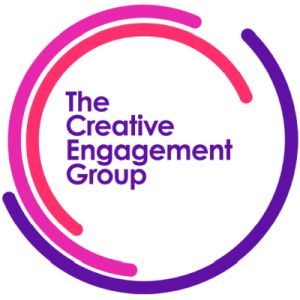
The Importance of Creative Mentoring in a Crisis

All industries are seeing the disappearance of opportunities and openings for workers due to the current crisis. In the advertising and creative industries, however, the impact is especially acute with the after effect likely to be long-lasting. This is because the workers at greatest risk are those on whom our industry’s future will, quite literally, depend: young – and, as important for great and effective creativity, diverse – creative talent.
In late March, representatives from the Black Alliance, comprising a raft of youth-based organisations, sent an open letter to the Government. In it, they warned that young, vulnerable people from underserved communities would be most impacted by the crisis and find it most difficult to return to normal. “For many young people, the youth sector is often the only place where they will find a trusted adult to support them,” they wrote.
It is a wake-up call no one in the creative industries – even as they battle to stay afloat amid the Covid-19 pandemic – can afford to ignore.
For despite people from lower socio-economic backgrounds making up 44% of the UK population, they account for just 12% of the workforce in the UK’s creative industries[i]. And this is an important business important issue as diversity is now acknowledged to be an important component of and contributor to business success[ii] as well as creative thinking[iii].
London-based charity Creative Mentor Network supports young people from low socio-economic backgrounds, with the aim of making the workplace more diverse and inclusive. Its network is made up of 650 programme graduates and a wider network of 3,000 young people.
Creative Mentor Network and its Founder, Isabel Farchy, works directly with schools and colleges to match talented young people from low-income backgrounds aged 16-25 with creative industry professionals from leading companies and agencies, who we train as mentors. For the mentees, it’s an invaluable step-up providing access to a world that might otherwise seem off limits.
Recent Creative MentorNetwork initiatives include 40For40 – a scheme, which is the industry’s first virtual mentoring trial, to recruit 40 mentors to mentor 40 mentees from a diverse background with a passion for commercial creativity for 40 minutes a week.
The current crisis not only interrupts the world’s usual flow, it poses a particular challenge for younger people who have only recently entered – or soon hope to enter – the workforce, so may not have experienced a recession, let alone something straight out of a Young Adult dystopian movie or novel. What, then, can – and should – businesses do?
First, they must maintain the focus on mentoring in such times. This is because mentors can teach individuals the importance of staying calm and preparing for what next – skills invaluable both to individuals and the creative companies they work for in the future.
Mentoring focuses on relationships, and connection (if not physical proximity) is vital right now. The National Institute of Health, the US research centre, offers this striking piece of information: “Captors use social isolation to torture prisoners of war—to drastic effect. Social isolation of otherwise healthy, well-functioning individuals eventually results in psychological and physical disintegration, and even death”.
Second, they should think laterally – finding alternative approaches for mentoring, it needs be. Checking in with mentees to see how they’re doing is a simple matter but nonetheless it is essential. As is understanding that people may take a little longer to get back to you – for both mentor and mentee.
Mentoring remotely can be relatively straightforward thanks to all the modern tools now at your disposal – especially if it's with someone you've already met and established a relationship with. Younger people, particularly, may be more up to speed with new forms of media and technology – whether it’s Skype, Zoom, or even FaceTime – to keep in touch. Actually speaking on the phone might even be an option. In mentoring, continuity, consistency and structure are key.
Finally, they must look out for a sense of disillusionment in the mentee – any hint of a sense that ‘because we’re all doomed there's no point trying’. Being terrified by a sudden collapse such as this is only natural, but all parties should remember two things. It's temporary, if open-ended, and things WILL change. And it’s not personal, for this is one boat we really are all in together.
At Creative Mentor Network, we are working with our partners to use this time wisely. Our message is to try not to focus entirely on the news headlines to the exclusion of everything else, as this can be psychologically damaging. To reflect on the skills young people will need when this is all over. And finally, to look on this pause as a blessing – regarding it as a priceless reset button providing precious time in which to reflect, and plan for the future.
Young people need their mentors now, more than ever.
For more information on how CMN can help you during this crisis, please get in touch here.
Russ Lidstone is Chair of Trustees for The Creative Mentor Network, Mentor for The Marketing Academy and Group CEO at The Creative Engagement Group










